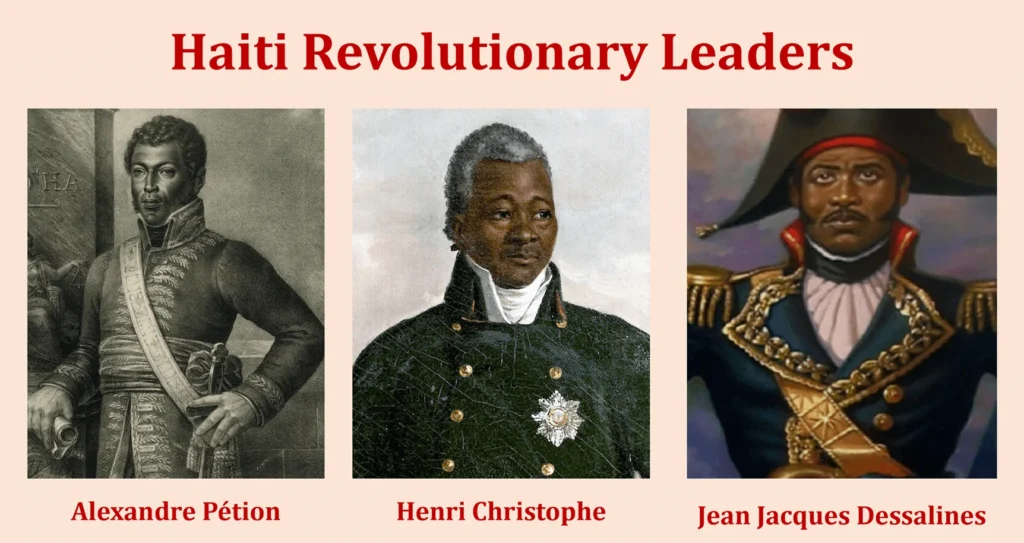- Haiti’s leadership in the 1850s was characterized by frequent changes and internal turmoil.
- The rise of Emperor Faustin Soulouque and his subsequent fall highlight a period of authoritarianism followed by efforts at national reconciliation.
- International relations played a significant role in shaping the country’s leadership dynamics.
Faustin Soulouque: From General to Emperor
In 1847, General Faustin Soulouque rose to the presidency, taking over after a chaotic period that saw numerous leaders come and go. His military background and initial popularity among the masses helped him consolidate power. Two years into his presidency, in 1849, Soulouque proclaimed himself Emperor Faustin I, a move that surprised many but reflected his desire to centralize authority and establish stronger control over Haiti.
Soulouque’s reign was characterized by authoritarianism. He ruled with an iron fist, suppressing dissent through intimidation, censorship, and violence. Political freedoms were severely restricted under his governance, and opposition was met with force. His regime prioritized military leaders over traditional elites, which created tensions with the upper class. However, Soulouque also attempted to foster national pride by emphasizing Haiti’s unique status as the first independent Black republic and investing in strengthening the military.
Despite his efforts to unify Haiti, Soulouque’s rule faced significant challenges. The economy struggled, and social discontent grew among different groups, including the elite, who felt increasingly marginalized under his regime. By the end of his rule, cracks began to appear, signaling the eventual downfall of his authoritarian control.
Impact on Society: Unity or Division?
Soulouque’s leadership style had profound consequences for Haitian society. While his centralized governance brought a degree of stability after years of political chaos, it also deepened divisions among the populace. His authoritarian approach alienated large portions of the population, particularly the elite class, who were sidelined in favor of military figures. Many Haitians, facing increasing poverty and limited political freedoms, grew dissatisfied with the regime. This discontent laid the foundation for eventual rebellion.
In addition to internal strife, Haiti’s external relations remained strained, particularly with its neighbor, the Dominican Republic. The ongoing tensions and conflicts with neighboring countries exacerbated internal divisions, weakening Soulouque’s efforts to unify the nation and maintain a cohesive identity.
The Downfall of Faustin Soulouque: A Shift in Power
By the late 1850s, growing dissatisfaction with Soulouque’s regime had reached its peak. His authoritarianism, coupled with economic problems and erratic behavior, led to widespread calls for change. In 1859, General Fabre Geffrard successfully led a coup, overthrowing Soulouque and bringing an end to his reign as emperor.
Geffrard’s rise to power marked a significant shift in Haiti’s leadership. He sought to restore civilian governance and promote national reconciliation after years of authoritarian rule. His administration focused on rebuilding weakened institutions, addressing economic challenges, and repairing the divisions that had emerged under Soulouque. However, Geffrard faced significant obstacles, including lingering political factions vying for influence and external pressures from foreign powers interested in Haiti’s resources and strategic location.
International Relations: Navigating External Pressures
The leadership challenges Haiti faced in the 1850s were not solely internal; they were also shaped by the country’s interactions with foreign powers. Haiti’s revolutionary past made it a focal point for international scrutiny, particularly from nations wary of its potential influence.
One of the most significant international challenges Haiti faced was its strained relationship with the United States, which had yet to formally recognize Haiti’s independence. The U.S. government, concerned about potential slave revolts inspired by Haiti’s revolution, was hesitant to engage with the Haitian government. This lack of recognition hampered Haiti’s ability to secure foreign investments and access international markets, further compounding the country’s economic struggles.
At the same time, European powers often dismissed Haiti’s sovereignty, viewing the country through a colonial lens and pursuing their own interests in the Caribbean. The geopolitical complexities of this era made it difficult for Haitian leaders to navigate international relations, further complicating their efforts to stabilize the nation.
Lessons from Haiti’s Leadership: Governance and Resilience
The leadership dynamics of the 1850s provide valuable lessons on governance and resilience during times of crisis. Faustin Soulouque’s authoritarian approach to ruling, while initially bringing some degree of order, ultimately led to increased dissent and societal division. His focus on consolidating power through military control came at the cost of political freedom and economic stability.
In contrast, Fabre Geffrard’s efforts to foster reconciliation and inclusivity in governance underscored the importance of incorporating diverse voices in leadership. His administration recognized the need to rebuild trust between different societal groups and repair the divisions that had emerged under Soulouque’s regime.
This period also highlights the significance of international relations in shaping national leadership. The failure to engage effectively with foreign powers, particularly in the case of U.S. recognition, limited Haiti’s economic growth and exacerbated internal challenges.
Conclusion: Reflecting on Haiti’s Leadership Journey
The 1850s were a decade of political upheaval for Haiti, characterized by the authoritarian rule of Faustin Soulouque and the subsequent efforts of Fabre Geffrard to restore civilian governance. This period reflects the complexities of leading a nation in transition, balancing internal stability with external pressures.
Effective leadership requires more than just the consolidation of power. It demands an understanding of societal needs, inclusivity in governance, and the ability to navigate complex geopolitical landscapes. By examining the struggles of past leaders, future Haitian leadership can strive toward a more united, stable society, learning from the lessons of this turbulent era.












Add a comment